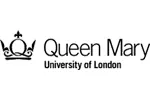About Dental Materials, MSc - at Queen Mary, University of London (QMUL)
IntroductionThe Department runs two types of Masters degree programmes. These consist of a taught MSc comprising eight lecture modules and a project equal to four modules; and a Research Masters comprising five taught modules and a seven module project. Each programme is closely tied to the interests of one or more of the Department`s research groups, ensuring that you are exposed to the latest developments in your chosen field.
Both the MRes and MSc programmes are designed to develop and enhance professional competence in individuals who are already experienced, and who wish to build on that experience through a structured programme of study. These programmes are designed to prepare students for a specific career or subject area.
Both these programmes will build upon knowledge and skills gained from a relevant first degree (or equivalent). Masters graduates will be able to demonstrate in-depth knowledge and understanding of their specialist subject area, while placing that subject within a wider organisational and contextual framework. You will understand current issues and thinking, along with techniques applicable to research in your chosen subject area. You will have both theoretical and applied perspectives and will be able to apply a range of specialist skills to the organisations in which you may operate.
The Research Masters is a one-year full-time postgraduate research course, leading to a Master of Research (MRes) degree. It is designed to provide graduates with the foundations for a career in research in industry, commerce, the service sector, the public sector or academia.
The courses are designed to provide high quality training in the methods and practice of research, and in complementary transferable skills. The MRes degree serves both as a qualification in its own right, for an immediate entry into a research career in industry, or elsewhere, or as an enhanced route to a PhD through further research.
All our MRes courses follow EPSRC guidelines and contain:
A substantial research component, comprising at least 50-60 per cent of the working year that involves research carried out solely by the student. You will have the opportunity to develop a research project, linked to a relevant problem, under the joint supervision of both participating industrial researchers, and academic staff.
Taught components (20-30 per cent of the course) cover research techniques including: research methodologies, philosophy and principles, ethics, experiment design, managing research progress, literature searches and information retrieval, data analysis and presentation, technical and scientific writing, patent law, intellectual property rights, innovation, entrepreneurship and exploitation of research, in addition to further components covering advanced knowledge and skills.
Taught components, comprising around 20 per cent of the course, cover transferable and personal skills such as: presentation skills, communication, negotiation, time management, health and safety, management and team working skills.
The course will take the form of two weekly lectures and a `mini-project` examination. The latter will give you one week to research two typical industrial scenarios, drawing on lecture materials. The course lectures will provide a detailed explanation of testing techniques and analytical methods commonly used in materials research. In addition, you will learn how to plan experiments, select appropriate standard test methods, process data and write technical papers.
Course descriptionThe MSc in Dental Materials degrees are designed for dental surgeons, materials scientists and engineers who wish to work in the dental support industries, and the materials health sector generally.
The topics typically covered include:
Dental Materials
Biomaterials and Biomechanics
Medical Engineering
Biosensors and Devices
Advanced Dental Materials
Materials Research Techniques.
This degree has some courses in common with the MSc in Biomedical Materials, but is aimed specifically at people with interests related to dental materials. Your research projects will be based on the research interests of staff of the Department of Materials and Department of Biomaterials in relation to Dentistry in the Dental School.
AssessmentAs part of your assessment, you are expected to work on an extended research project, of over eleven months, which will be evaluated by thesis, presentation and viva (by an external examiner). The taught courses are all examined in May or early June.
Entry requirementsA minimum of a second class honours degree in a science, engineering or technology based subject.
Research element (project)Each student is assigned a project supervisor involved in their research area. Following the completion of the extended research project, a thesis, which will normally include both theoretical and applied research, is then written over the summer months, and submitted by the end of September.
Both taught and research elements of the course must be passed to obtain a degree.


